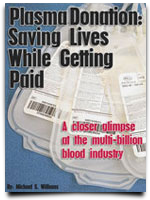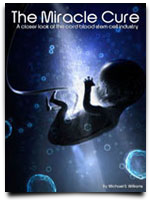AusCord is an Australian cord blood bank funded by the government. For the reason that it does not provide cord blood for research purposes unless it is needed for clinical use, insufficient supply is experienced by numerous medical researchers in Cerebral Palsy Alliance.
Dr. Iona Novak is the head of the said association and she sincerely encourages more parents to store their newborn’s umbilical cord in private banks. The procedure costs around $3000 and if the numbers of stored units will improve, the research on stem cell research will also get a boost.
”We know that, at the moment, there are about 40 children with cerebral palsy with their own blood banked in Australia, which is not that much to do a study with,” Dr Novak said.
Mark Kirkland is an associate professor in CellCare, a private blood bank. He confirms that there are few privately banked cord blood samples in Australia and these units must be used for research.
”There’s been a lot of negativity around the idea of storing your child’s own cord blood because these are unproven treatments. But it’s a catch-22 – you can’t do the trials because you haven’t stored your child’s blood.”
Dr. Ngaire Elwood is the chairwoman of AusCord and she will look closer into the situation and will find a way to meet the needs of stem cell research once the system for utilization is fixed.
”For the next four years it’s felt that we are generally meeting the needs of the Australian population.”





Cord Blood Banking Facebook
Blood Donation Twitter